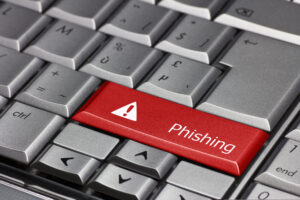As technology advances, so does the way cybercriminals operate. When it comes to safeguarding your online presence, there are a few key things you can do.
1) Change Your Password Often
Passwords play an integral part in securing your online presence, mainly if they’re recycled between accounts. The longer you use one password on multiple websites, the more likely it is that a cybercriminal will figure out what it is. You can use password managers like LastPass or 1Password for password safety, so you don’t have to remember every password by heart.
2) Use Two-Factor Authentication
Two-factor authentication requires an additional code in order for your account to be accessed. This generally works for a password security device like your phone or tablet. If you try using the same password and device, the authentication should fail.
3) Avoid Public Wifi Networks
Public wifi networks are sometimes less secure than personal ones, especially if they’re not password-protected. For online safety, it is much easier for someone to sniff your data when you’re using a public network, so it’s best to avoid them when you can. This means that maybe hanging out at Starbucks isn’t the best idea.
4) Don’t Reveal Personal Information
You might have heard of “doing -” before this is where someone maliciously releases personal information on your online presence, like your real name or address. This could be used to spam you with phishing emails, and prank calls you, etc. Try not to reveal any more information than necessary about yourself online.
5) Use VPNs Sparingly
VPNs are great for providing some cover over your internet activity if it’s something that has to stay private (like streaming movies), but it doesn’t necessarily mean they’re safe. Private data can still be intercepted, so it’s best not to use them when you don’t have to.
6) Stay Aware of Malicious Links
You’re probably aware that specific URLs are dangerous to click on. Still, cybercriminals often try to pass off links as safe by changing the URL slightly or including a character after what would be considered an unsafe one. Additionally, they might include .com at the end of the link while leaving out the rest of it (e.g., https://gooogle.com/). Be really careful when clicking on links online and make sure you check your sources beforehand!
7) Backup Your Data
Regularly backing up your data is always a good idea, but it’s vital if you have an online presence that you want to protect. This way, if something happens to your devices or accounts, you’ll still have your data backed up and safe.
8) Educate Your Employees
If you have employees, it’s important to educate them about cyber security and how to protect their online presence. Many cyberattacks are done through phishing emails, so teaching employees how to spot them is an excellent place to start.
9) Use Antivirus and Antimalware Software
Antivirus and antimalware software are essential for keeping your devices safe from malware and other online threats. Make sure you have a good online security solution in place and that it’s up-to-date!
10) Keep Your Software Up-To-Date
Software updates often contain security patches that fix vulnerabilities in the software. If you don’t update your software, you’re leaving yourself open to attacks. This goes for both your operating system and your applications.
Securing your online presence is important, mainly if you rely on the internet for business purposes. By following these tips, you can help keep yourself and your company safe from cybercrime.




